Tag Archive for: general relativity

Oppenheimer-Snyder Model of Gravitational Collapse: Mathematical Details
/
0 Comments
Part 1: OverviewPart 2: Mathematical DetailsPart 3: ImplicationsIn a previous article, I described in general terms the model of gravitational…
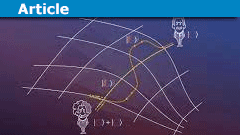
When Discussing the Twin Paradox: Read This First
This article is intended for anyone who wants to start a thread here at Physics Forums on the twin paradox. There are already many, many threads here on…
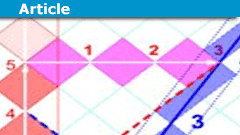
Relativity on Rotated Graph Paper (a graphical motivation)
(based on https://www.physicsforums.com/threads/teaching-sr-without-simultaneity.1011051/post-6588952 and https://physics.stackexchange.com/a/689291/148184…

I Know the Math Says so, but Is It Really True?
I'm sure anyone who has hung out long enough here on Physics Forums has encountered threads that go something like this (I'll use an example based on threads…
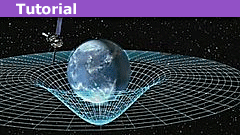
Understanding Precession in Special and General Relativity
The Absolute Derivative
In relativity we typically deal with two types of quantities: fields, which are defined everywhere, and particle properties, which…
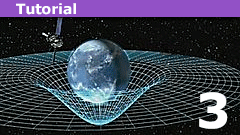
Exploring Fermi-Walker Transport in Kerr Spacetime
In the last two posts in this series, we developed some tools for looking at Fermi-Walker transport in Minkowski spacetime and then applied them in Schwarzschild…
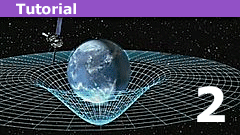
Learning Fermi-Walker Transport in Schwarzschild Spacetime
In the first post in this series, we introduced the concepts of frame field, Fermi-Walker transport, and the "Fermi derivative" of a frame field, and developed…

Fermi-Walker Transport in Minkowski Spacetime
This is the first of several posts that will develop some mathematical machinery for studying Fermi-Walker transport. In this first post, we focus on Minkowski…
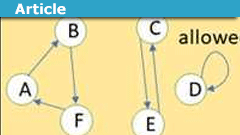
How to Better Define Information in Physics
When I ask questions about the conservation of information I frequently get the reply, “It depends on what you mean by information.” So, I researched…

How to Solve Einstein’s Field Equations in Maxima
A few months ago, pervect pointed me to a post by Chris Hillman which is an introduction to the usage of Maxima for General Relativity. Maxima is a free…
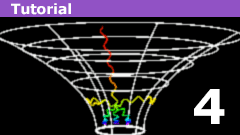
The Schwarzschild Geometry: Physically Reasonable?
In the last article, we looked at various counterintuitive features of the Schwarzschild spacetime geometry, as illustrated in the Kruskal-Szekeres…
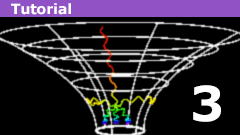
The Schwarzschild Geometry: Spacetime Diagrams
When we left off in part 2, we were looking at the metric for the Schwarzschild geometry in Kruskal-Szekeres coordinates:$$
ds^2 = \frac{32…
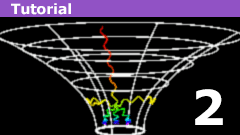
The Schwarzschild Geometry: Coordinates
At the end of part 1, we looked at the form the metric of the Schwarzschild geometry takes in Gullstrand-Painleve coordinates:$$
ds^2…
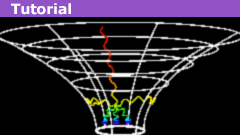
The Schwarzschild Geometry: Key Properties
Not long after Einstein published his Field Equation, the first exact solution was found by Karl Schwarzschild. This solution is one of the…

Exploring General Relativity as a Gauge Theory
The fundamental interactions of the Standard Model are described by Yang-Mills theory. This is a gauge theory, which means the following: (1) Choose a…

The Revival of Newton-Cartan Theory in General Relativity
It's a calculation which you can find in any textbook on General Relativity (GR): when gravity is weak and does not vary with time, and when particles…

Learn about the Big Bang and the Expansion of the Universe
The "ordinary Big Bang and expansion" (no inflation, no dark energy)
Einstein's General Relativity allows a solution (FLRW metric) where an empty Universe…
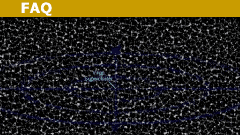
Radius of the Observable Universe in Light-years Is Greater than Its Age
The radius of the observable universe is about 46 billion light-years, which is considerably greater than its age of about 14 billion years. The radius…

Can We Tell Whether the Universe Is Rotating?
If you believe wholeheartedly in Mach's principle, then there is no way to test empirically for rotation of the universe as a whole, since there is nothing…
